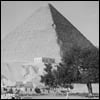ב"ה
Parshah Halachah
Halachic Issues Culled from the Parshah
55 items in this section
Sort By:
|
Advanced
Parshat Bereishit
The first mitzvah in the Torah is "to be fruitful and multiply." As the verse in Genesis states: "And G‑d said to them, 'Be fruitful and multiply and fill the earth...'" This mitzvah is considered a "great mitzvah" and in some cases even overrides certain other laws.
|

Advanced
Parshat Noach
The Torah commands every person to ensure his animals are fed—and in the proper time. Actually, we are commanded to feed our animals before we eat ourselves. “And I will give grass in your field for your livestock”—and only thereafter “and you will eat and be sated.”
|

Advanced
Parshat Lech Lecha
Our sages go as far as to say that if not for this mitzvah, G‑d would not have created the heavens and earth; it is the greatest of the positive mitzvot; and considered the equivalent to all of the mitzvot of the Torah combined!
|
|
Parshat Vayeira
The proper date and time, the laws of a Shabbat brit, a list of honorees, and a to-do preparatory list.
|

Advanced
Parshat Chayei Sarah
The essence of prayer is kavanah—focus and concentration. In order to achieve proper kavanah, it is important to pray in the proper place and with as few distractions as possible. This article focuses on the appropriate location for prayer, as well as the immersion in a mikvah.
|
|
Parshat Toldot
It seems that pressing need overrides the general prohibition against deception. This article will explore the importance of truth and the permissibility of deception under extenuating circumstances.
|
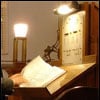
Advanced
Parshat Vayeitzei
It is said that in the merit of praying with a minyan, one will make a living more easily and be blessed with the fruits of his labor. In fact, even if praying with a minyan causes one financial loss, G-d will repay him by granting him extra success...
|
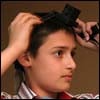
Advanced
Parshat Vayishlach
Calculating the bar mitzvah date, the privileges and responsibilities of the bar mitzvah boy, and laws and customs associated with the bar mitzvah celebration.
|
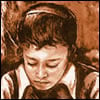
Advanced
Parshat Vayeishev
Lessons from the Torah regarding proper childrearing and education.
|

Advanced
Parshat Mikeitz
Rabbi Schneur Zalman of Liadi explains that meaningful dreams emanate from a very high spiritual level. But does this mean that our dreams are messages from G-d? Should we be frightened by a dream that portends doom?
|
|
Advanced
Parshat Vayigash
A collection of laws that pertain to traveling. Studying while traveling, praying while traveling the Traveler’s Prayer, and more.
|
|
|

Advanced
Parshat Va'eira
Because when praying we stand before the King of kings, it is appropriate that we ensure that our environment is suiting, and that we dress in a respectable manner.
|

Advanced
Parshat Bo
Mitzvot Done with the Right Hands, and Guidelines for Left-Handed People.
|
|
Advanced
Parshat Yitro
The firstborn is a link in the chain that connects the souls of the younger siblings to their parents, and through them to G‑d. Therefore the siblings must respect him—just as they are obligated to respect their parents.
|

Advanced
Parshat Mishpatim
Several reasons have been suggested for this mitzvah. Some argue that it is cruel to cook a baby in the very milk that was intended to nourish it. Others suggest that the reason for this mitzvah is health related. Maimonides asserts that an ancient pagan ritual which involved the cooking and consumption of meat and milk is the source of the prohibition...
|
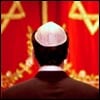
Advanced
Parshat Terumah
The synagogues and study halls in the Diaspora are considered “miniature sanctuaries.” For this reason, we find that some of the physical characteristics of the Holy Temple are to be incorporated into the building of a synagogue . . .
|

Advanced
Parshat Tetzaveh
The priests were required to wear special clothing when performing their service in the Holy Temple. Similarly, the Torah scholars of ancient Babylonia would dress impressively, so as to encourage people to honor the Torah that they represented . . .
|

Advanced
Parshat Ki Tisa
The basic rule of thumb as far as having a gentile do work for a Jew on Shabbat is that if a Jew may not do it, a non-Jew cannot do it for him. There are, however, various exceptions to this rule...
|

Advanced
Parshat Vayikra
The chassidic masters explain that the more one is nullified before G‑d, the more humble one becomes in the face of G‑d’s infinite greatness . . .
|
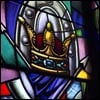
Advanced
Parshat Tzav
In Jewish law, we find that certain positions are passed from father to son, provided that the son is worthy of filling his father's post, while other positions are not inherited. This article will explore this issue.
|

Advanced
Parshat Shemini
In order to render a fish kosher, the scales must be visible to the naked eye and they must be easy to remove from the skin of the fish. If the scales can be only be removed after soaking the fish in scalding water, there are differing views as to whether the fish is considered kosher...
|

Advanced
Parshat Tazria
Laws and customs pertaining to pregnancy, labor, birth, and the new mother.
|

Advanced
Parshat Metzora
How to use one's power of speech in a positive and healing manner.
|

Advanced
Parshat Acharei
This article explores the Torah’s rules regarding whom one may and may not marry.
|

Advanced
Parshat Kedoshim
The reason for this prohibition is not clear. As the verse says: “You shall observe My statutes . . .” This means that this mitzvah is a “chok”—a divine statute that defies (full) comprehension.
|

Advanced
Parshat Emor
A Kohen may not come in contact with a human corpse. Find out why, how, the exceptions to this rule, and the areas a Kohen should avoid.
|

Advanced
Parshat Emor
By nature people need joyous occasions in their lives. In His kindness, G-d established holidays when we can experience joy in a holy context and express thanksgiving for the miracles G-d has performed for us...
|

Advanced
Parshat Behar
One should be extremely careful to never shame another in public. This sin is akin to murder; just as blood is spilled in the act of murder, so too when one is shamed the blood drains from his face...
|
|
Parshat Bechukotai
All Jewish souls constitute one entity. Our nation is likened to a large body, each soul emanating from one of its 248 limbs. From this stems our mutual responsibility for one another—because we truly are one.
|
|
Advanced
Parshat Bamidbar
The prohibition against counting Jews directly, its reasons and applications.
|

Advanced
Parshat Behaalotecha
We find that lashon hara, negative talk, is a sin that has caused numerous tragedies for the Jewish people, and indeed the world, since the very beginning of history.
|

Advanced
Parshat Shelach
Our sages say that one who fulfills this mitzvah properly merits to have a wife and children. He is also protected from sin, and in that merit he is assured that he will see the face of the Divine Presence . . .
|

Advanced
Parshat Korach
The final paragraph of the Mishnah states: “Great is peace, for G‑d found no other vessel for [His] blessings other than peace.” Meaning that G‑d only sends His blessings to a family, community, country, etc., if it is in a state of peace.
|

Advanced
Parshat Chukat
While we must recognize that every illness is a message from G‑d and take appropriate spiritual action, at the same time we may, and must, use medicines that have healing powers.
|

Advanced
Parshat Balak
Our Sages recognized that in order to overcome natural temptations, a person must control his sight and thoughts —the faculties through which he can be led astray. The most common cause of a forbidden union is a man and woman – not married to each other – being secluded together in a private setting...
|
|
Advanced
Parshat Pinchas
When the sages instituted the daily prayers, they included a prayer for each of the regular communal sacrifices. They also instituted the Musaf prayer to be recited on any day when the musaf sacrifice was to be offered.
|

Parshat Matot
After the Jewish people were victorious in their war against the Midianites, Elazar the high priest taught them the laws of “kosherizing” food utensils taken from the spoils of the enemy. The reason for this immersion is to bring the vessel into the holy domain of the Jewish people . . .
|

Advanced
Parshat Massei
The Torah considers one responsible for safeguarding one's own as well as others' health and wellbeing. Presented here is a partial collection of laws pertaining to guarding the life and health of oneself and others.
|
|
Advanced
Parshat Devarim
By forbidding Jews from eating food cooked by non-Jews, our sages intended to create a social barrier between Jews and non-Jews in order to prevent intermarriage.
|
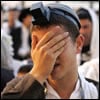
Advanced
Parshat Va’etchanan
Our sages tell us that the creation of the entire world is considered a worthwhile endeavor just for the acceptance of the yoke of Heaven that we enact during the daily recital of Shema.
|

Advanced
Parshat Eikev
When one recites the Shema, he should do so tremulously, with concentration, reverence and awe, as people are wont to do when reading a new communication issued by the king.
|

Advanced
Parshat Re'eh
Giving loans is considered a greater mitzvah than the mitzvah of giving charity because it is less embarrassing for a needy person to take a loan than to receive charity.
|
|
Advanced
Parshat Shoftim
The prohibition of cutting down fruit trees is stricter than the prohibition of destroying other objects of value. Since man is compared to a fruit tree, it is particularly harmful to destroy a tree, for the act unleashes negative spiritual energies.
|
|
Advanced
Parshat Ki Teitzei
Cross-dressing can lead to promiscuous behavior. Wearing the clothes of a woman would enable a man to mingle inappropriately among women, and vice versa...
|

Advanced
Parshat Nitzavim
A collection of the sources from the Torah that serve as the basis for belief in Moshiach and for the details regarding Moshiach and the messianic era.
|
|
Advanced
Parshat Vayelech
The 613th mitzvah of the Torah is the obligation for every Jew to write a Torah scroll. In the words of the verse: ""And now, write for yourselves this song, and teach it to the Children of Israel..."
|
|
Advanced
Parshat Haazinu
The blessings that express our wish to connect our souls and the entire world with the essential holiness of the Torah.
|

Advanced
Parshat Vezot Haberachah
The arrangement whereby one person supports the other who learns Torah, and the reward is shared between the two of them, has come to be known as a “Yissachar-Zevulun” partnership.
|

Advanced
Parshat Vayakhel
Although the halachic authorities concur that electricity per se is not considered fire, it is nevertheless universally agreed upon that one may not operate electrical appliances on Shabbat. There are various reasons offered for this...
|
Sort By:





